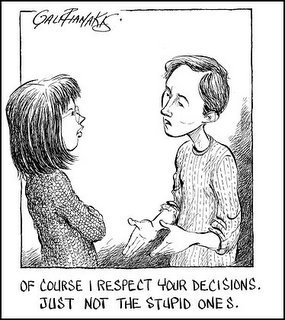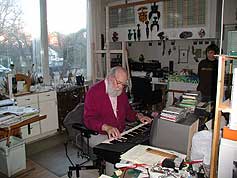Time shared
This short fanfare for MW Morse’s jazz ensemble is a musical sign for life; the good power of music, and the ideal of people living in peace and joy together. However, the witty title Beat Your Swords Into Timeshares suddenly reminds me – not of the Bible, not of holiday cottages – but of the unfortunate events with a sacred sword in The Transposed Heads, a funny and horrible story by Thomas Mann, after a legend from India:
“How in thy breast must generosity and despair have gone hand in hand, in sacrificial dance, ere thou couldst slay thyself! Oh woe, Oh woe! Severed the fine head from the fine body!”
And I guess it is snowing in Southern Ontario today. Also a good sign. Even if Mike had to fire the bassist in his band, employ a new musician, and find a new job for the old bassist. That’s like what happened in the story: the head severed from the body…




